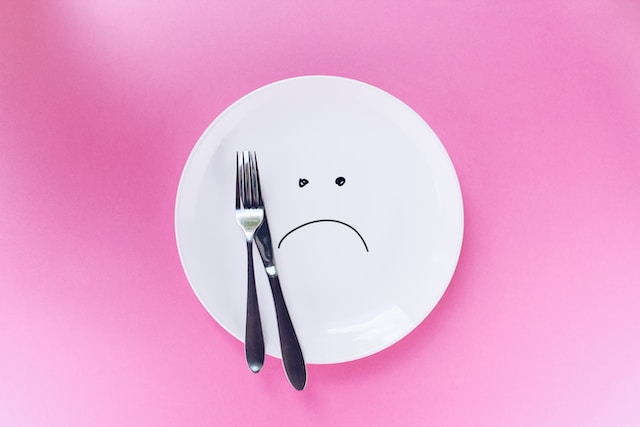Do you ever find yourself feeling tired and sluggish, even after a good night’s sleep? The answer to your fatigue may lie in what you’re putting on your plate. Diet plays a crucial role in our overall well-being, and the link between diet and tiredness is becoming increasingly evident. In this article, we will explore how the foods we consume can impact our energy levels and discuss the best dietary practices to combat tiredness effectively.
How Diet Affects Energy Levels
The foods we eat serve as fuel for our bodies, providing the necessary energy to carry out daily activities. The three primary macronutrients—carbohydrates, proteins, and fats—play a vital role in energy production. Carbohydrates are the body’s preferred source of energy and can be found in foods like grains, fruits, and vegetables. Proteins help repair and build tissues, while fats provide a concentrated source of energy and support various bodily functions.
In addition to macronutrients, micronutrients also play a crucial role in combating tiredness. Iron, for example, is involved in the production of hemoglobin, which carries oxygen to body tissues. B vitamins, such as B12 and folate, help convert food into energy, while vitamin C aids in the absorption of iron.
Foods That Boost Energy
Certain foods are known for their energy-boosting properties and can help alleviate tiredness. Complex carbohydrates, such as whole grains, provide a steady release of energy throughout the day. Lean proteins, including chicken, fish, and legumes, supply essential amino acids for cell repair and energy production. Healthy fats, such as avocados and nuts, help regulate blood sugar levels and provide a sustained source of energy.
To combat tiredness caused by nutrient deficiencies, it’s important to include specific foods in your diet. Iron-rich foods like spinach, lentils, and lean red meat can help prevent iron deficiency anemia, a common cause of fatigue. Foods rich in B vitamins, such as whole grains, eggs, and leafy greens, support energy production. Additionally, consuming citrus fruits and berries can provide a natural energy boost due to their high vitamin C content.
Foods That Cause Fatigue
While some foods can boost energy, others can leave you feeling fatigued. Refined sugars and processed foods, such as sodas and pastries, provide a quick energy spike but are followed by a crash that leaves you feeling drained. High-fat foods, like fried foods and heavy meats, take longer to digest and can make you feel sluggish. Eating large, heavy meals can also cause fatigue as your body works to digest the food. Additionally, while caffeine and alcohol may provide a temporary boost, they can also disrupt sleep quality, leading to increased tiredness over time.
The Importance of Hydration
Staying hydrated is essential for maintaining energy levels and preventing fatigue. Dehydration can cause a drop in blood pressure, leading to feelings of fatigue and dizziness. Experts recommend drinking at least eight glasses of water a day to maintain proper hydration levels. In addition to water, hydrating foods like cucumbers, watermelon, and soups can also help keep you hydrated.
Meal Timing and Energy Levels
The timing and frequency of meals can also impact energy levels. Skipping meals or eating irregularly can cause blood sugar levels to drop, leading to fatigue. It’s important to eat regular, balanced meals throughout the day to maintain consistent energy levels. A balanced breakfast, including complex carbohydrates and lean proteins, can provide a sustained source of energy throughout the morning. Energy-boosting snacks, like nuts and fruit, can help keep you alert between meals. A light dinner can also aid in sleep quality, leading to increased energy the next day.
Other Factors Affecting Tiredness
While diet plays a significant role in energy levels, other factors can also contribute to tiredness. Quality of sleep is essential for restoring energy levels and maintaining alertness during the day. Stress management techniques, like meditation or exercise, can help alleviate feelings of fatigue caused by stress. Finally, regular physical activity can increase energy levels and improve overall health.
Conclusion
In conclusion, the link between diet and tiredness is clear. Consuming a balanced diet rich in complex carbohydrates, lean proteins, healthy fats, and micronutrients like iron and B vitamins can help combat feelings of fatigue. Hydration, meal timing, and stress management also play a crucial role in maintaining energy levels throughout the day. By adopting these healthy dietary practices, you can increase your energy levels and combat tiredness.
FAQs
- Can diet alone cure tiredness?
Diet is an essential factor in combating tiredness, but other factors like sleep quality and physical activity also play a significant role.
- How much water should I drink to combat fatigue?
Experts recommend drinking at least eight glasses of water a day to maintain proper hydration levels.
- Can caffeine and alcohol make tiredness worse?
While caffeine and alcohol may provide a temporary boost, they can also disrupt sleep quality, leading to increased tiredness over time.
- What are some energy-boosting snacks?
Nuts, fruit, and whole-grain crackers are excellent choices for energy-boosting snacks.
- Is it essential to eat breakfast for increased energy levels?
A balanced breakfast can provide a sustained source of energy throughout the morning, making it an essential part of maintaining energy levels throughout the day.
